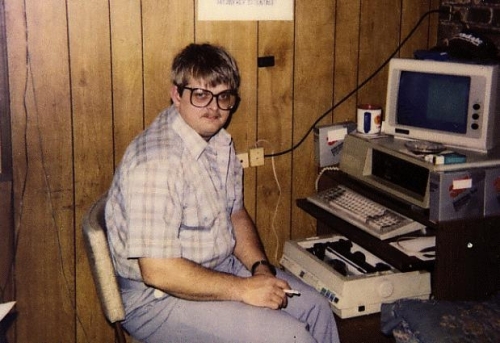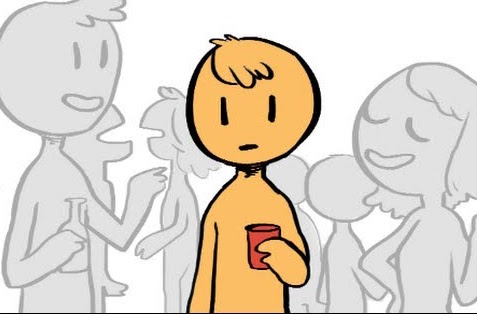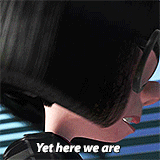Tabletop Tuesday – Social Contracts and Table Norms
PCU recently published an article talking about toxicity and divisiveness in geekdom and the Internet. While the discussion primarily focused on online gaming and social media, many of its problems also ring true for tabletop games.
I’ve already written on this topic several times before, from the backlash against edgelords and bigots, to accusations of abuse and rape by industry figures. Even the social media aspect of tabletop gaming received attention when Roll20 proved an example of how to be a bad admin.
I have plenty to rant about regarding “Connected Yet Alone: The Enemy Online,” and how the tabletop gaming community (from board to RPG) often encourage crappy behavior and ideologies. There are plenty of groups or forums that do this actively (through bad admins/moderators) or passively (through poor attempts at “avoiding politics” or “being moderate”).
That’s not the point of this article, however, as I instead want to discuss one way you can keep these problems from your table and games: social contracts. You’ve probably read dozens of blogs, forums, or articles on this before, but I hope that maybe I can reach those who can’t seem to grasp the basic concept.

Yes, we’re talking about “that guy”
“Social Contracts” is a term we hear all the time and it sounds way more complicated than it is; it’s merely the agreement on how you’re going to behave, not only in the game but also with those around you. Although the term sounds like some formal, legal document (and the concept originates in such), there’s no need for such among most groups.
You participate in “social contracts” every day, from the rules of your job or school to knowing how to behave in public. Keeping quiet in libraries, not talking politics with that racist uncle, not farting in an elevator – these are all norms you’ve agreed to with people, places, or society in general.
Of course, the social contract in tabletop gaming is more than just general behavior among the group, even if that’s important. These agreements also include deciding what games to play, who’s the moderator or GM (if any), if there’s any themes or topics to avoid (particularly in RPGs), or if Shannon is banned from drinks at the table.

Really, Shannon?!
When we’re among our peers, it’s easy to adhere to norms because we know each other; we understand what types of games we like, what our schedules are, whether food is allowed at the table (and who’s paying for it), what sort of humor or language is tolerated, etc. We have a “social contract” developed and modified over months or years of friendship, and as friends, we also recognize when these norms might change (or at least I’d hope you would).
The harder part is when you’re gaming with acquaintances or strangers, like at stores, conventions, or (especially) online. The further removed you are from a person (both in familiarity and distance), the less likely you are to understand them, the higher chance you are to clash or offend, and thus the more important it is to have a social contract.
Again, you don’t have to write things up like some grand Constitution, although some groups do that. The “contract” might be as simple as rules posted on walls or websites (like you find at stores and conventions), chapters in a rulebook (e.g., many RPGs today), or special rules (like the X Card).
What individual players can do is simply introduce each other before the game and agree on some basic norms. Figure out who everybody is, what themes they like (or hate), decide what you’re going to play, announce any lines you’d prefer not to cross – basic friendly, human interaction.

You mean we have to socialize when we’re playing with others?!
Essentially, a “social contract” among strangers boils down to just being civil and considerate, yet you’d be surprised how many people take offense to those basic concepts.
You’ll find people who whine about the game choice or act out all night long, argue over agreed-upon rules (or with the GM), grab cards and miniatures with Cheeto-stained hands, etc. You’d think players would understand basic norms and consideration but if you ask people to knock-it-off then suddenly you’re the unreasonable one.
Then you have gamers who spout uncensored language or rhetoric, and then blame anyone who takes offense as “oversensitive,” “snowflakes,” “PC,” etc. Please stop trying to blame others for your inability to play a game without “locker room talk.” It’s not up to them to tolerate your rape jokes, homophobic slurs, or “well, actually”s.
Let’s put it this way – if you wouldn’t say it on broadcast television, around kids, or to your mother? It’s best to keep your mouth shut when you’re playing with strangers or in public.
The point is, when you’re playing with your friends, behave however is normal for everyone there. Once you step outside that circle, however, you should always err on the side of courtesy and respect.

Don’t be “That Guy.” There are consequences.
Now, one problem we need to touch on while discussing toxicity and social norms, are people who behave in extremely inappropriate, harassing or abusive ways.
Maybe they’re entirely clueless how their behavior offends, disturbs, or frightens everyone. In a hobby that attracts individuals with questionable social skills, you never know why somebody is the way they are.
Other times, the person may be fully aware and just not care about how they impact the table. As mentioned above, they’ll probably blame everyone else and try to flip the script on who’s at fault, which is a process we discussed in a previous article on abusive people.
Let’s be clear– sexual harassment, flagrant threats, and abusive acts (whether physical or not) are always a violation of any “social contract” with people you don’t know.
Only the closest of peers might tolerate these (“bros being bros”), and then it’s up to them, in that group, what level they’ll allow. It is never cool to do these things with people outside your personal friends, and you probably should keep blatant acts (that people might misunderstand) to private hangouts or where everybody knows you.

This is not how you should behave!
In the end, a social contract, even if just verbal, helps put everybody on the same page and avoids turning a fun gaming session into a toxic environment. All too often, from the Internet to FLGS, someone isn’t on the same page (or refuses to join), and it sours the experience for everybody.
You need to understand what games to play, what rules to use, any topics or themes you want to avoid, etc., especially with strangers. You most definitely need to err on the side of civility and watch your language, humor, and behavior, at least until everyone is more comfortable and lines are understood.
If you think other people are the problem or that you can’t agree to these norms? Take a step back and find a group with a “social contract” a bit closer to your preferences, rather than ruin others’ experiences; everyone will win with that choice.
And for those who think it’s OK to be abusive or harass others – that’s not even acceptable in the general public, so keep it to yourself. I also highly recommend you rethink your world view and life choices, or else you’ll find no one who wants a “social contract” with you.
Look, we’re all hopefully here for the same reason: to play games and have fun. To do that, you’re going to need to establish some norms, and a social contract is the best way to ensure everybody agrees to what’s “fun.”
I wish I didn’t have to write yet another article explaining this very simple, common sense idea…



So… what happened to “Toxicity and Geek Facebook Groups”? Fortunately I was able to read the article in my email, but why isn’t it posted on the PCU site?
LikeLiked by 1 person
It was published prematurely, and still needed a couple of edits. It will be back up on 04/02/2019 at 10 am Eastern Time.
LikeLike
Great post.
LikeLike